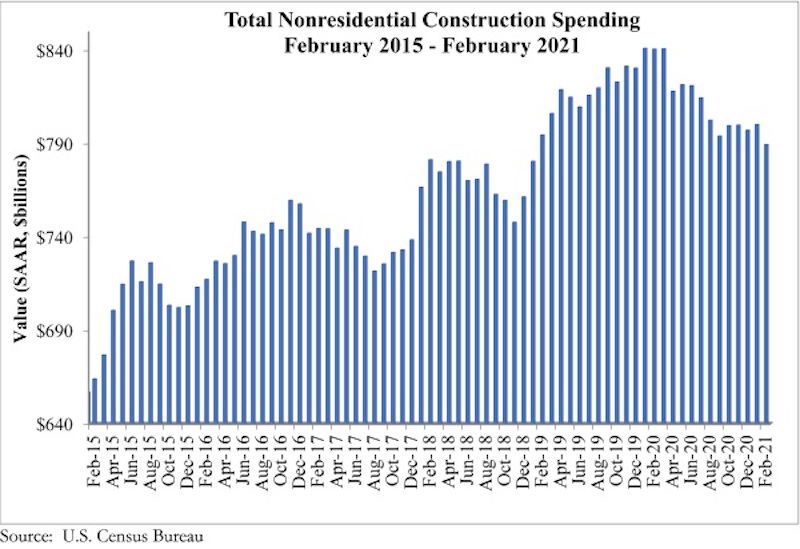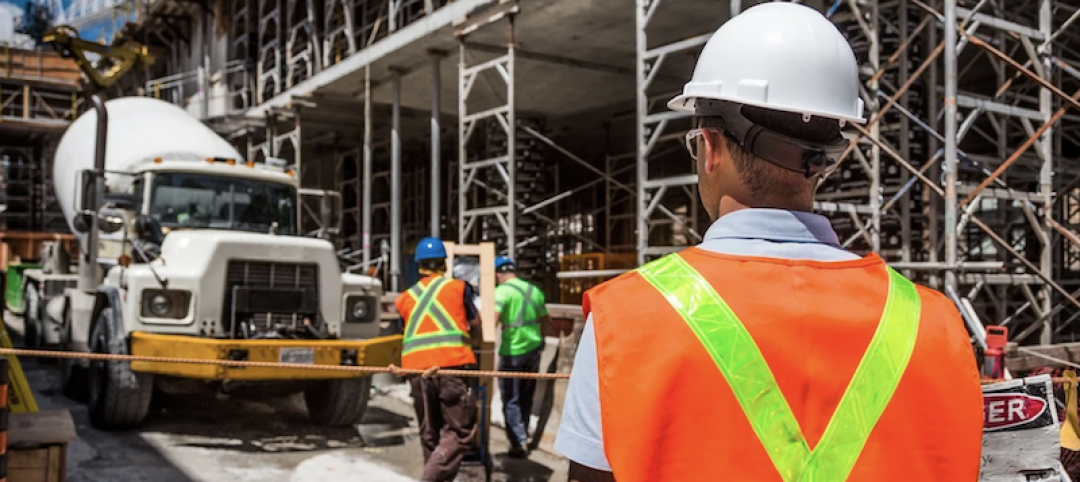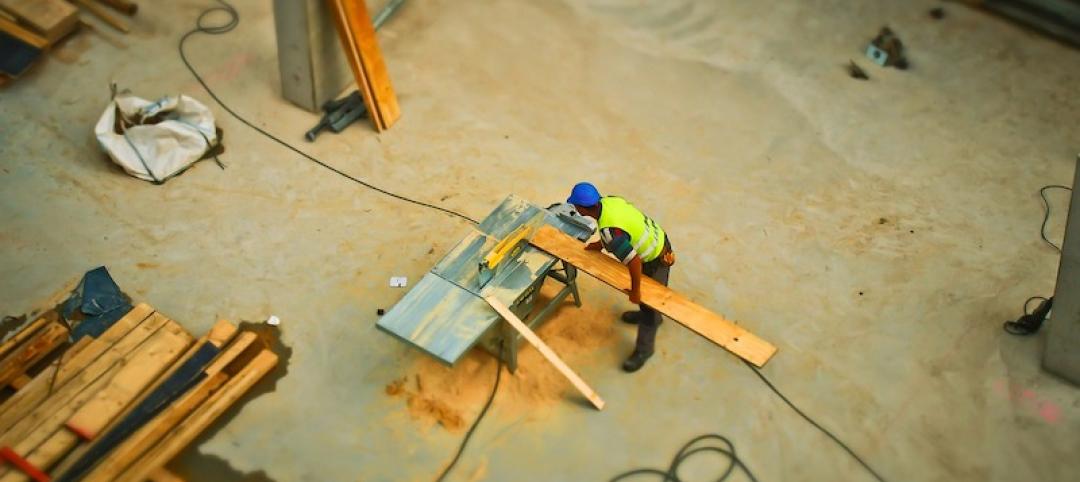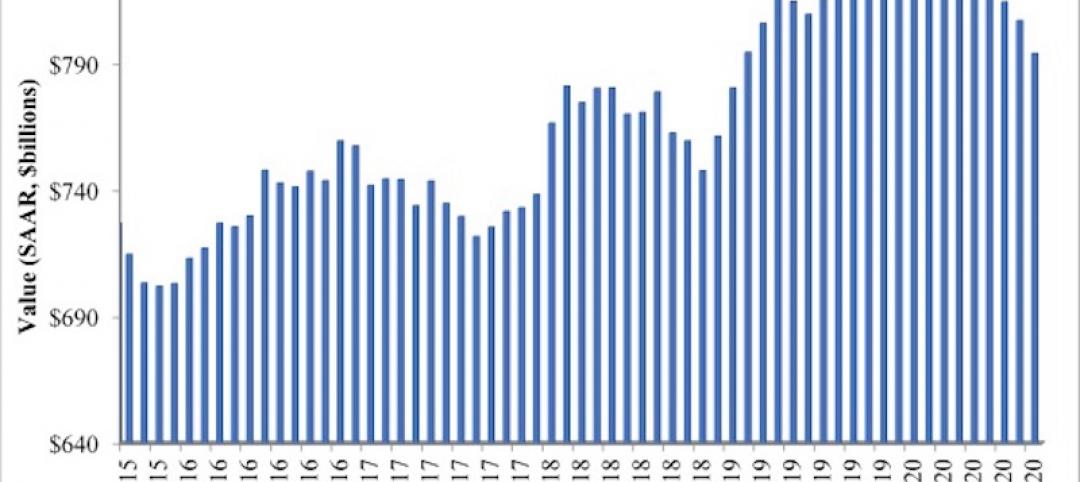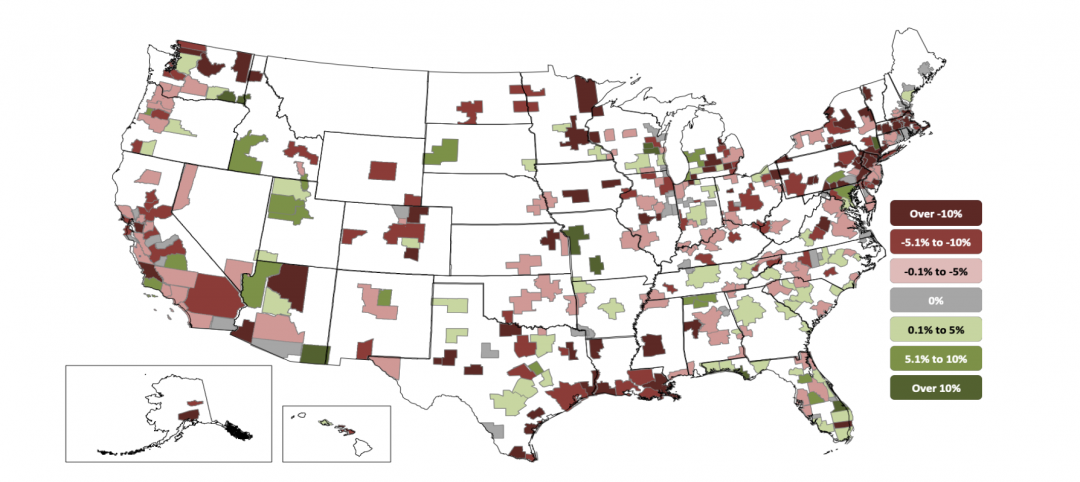National nonresidential construction spending declined 1.3% in February, according to an Associated Builders and Contractors analysis of data published today by the U.S. Census Bureau. On a seasonally adjusted annualized basis, nonresidential spending totaled $789.5 billion for the month.
On a monthly basis, spending was down in 13 of 16 nonresidential subcategories. Private nonresidential spending was down 1.0%, while public nonresidential construction spending fell 1.8% in February. Nonresidential construction spending has declined by 6.1% from the same time last year.
“We remain in the midst of the COVID-19 pandemic, which has shattered commercial real estate fundamentals,” said ABC Chief Economist Anirban Basu. “This too shall pass, but there continues to be downward pressure on nonresidential construction activity, and that was apparent in February, when weakness in spending was apparent in private and public segments alike.
“But past is not prologue in this instance,” said Basu. “America is about to experience a massive resurgence in economic growth as vaccinations proceed. Many ABC members report that backlog has already been climbing as projects that had been postponed earlier in the crisis come back to life. While some residual weakness may persist in the next few months, nonresidential construction spending is poised to stabilize during the summer and enter 2022 with substantial momentum, though some private construction segments will continue to lag.
“Consequently, the nature of the challenges facing contractors will shift dramatically during the months ahead,” said Basu. “While many contractors have indicated that demand for construction services has been among their leading sources of concern during the pandemic, by the end of this year, the greatest challenge for many will be securing a sufficient workforce with which to compete for and complete projects. This will likely be even more of an issue in 2022 and 2023 as the pace of economic recovery progresses.”
Related Stories
Market Data | Nov 30, 2020
New FEMA study projects implementing I-Codes could save $600 billion by 2060
International Code Council and FLASH celebrate the most comprehensive study conducted around hazard-resilient building codes to-date.
Market Data | Nov 23, 2020
Construction employment is down in three-fourths of states since February
This news comes even after 36 states added construction jobs in October.
Market Data | Nov 18, 2020
Architecture billings remained stalled in October
The pace of decline during October remained at about the same level as in September.
Market Data | Nov 17, 2020
Architects face data, culture gaps in fighting climate change
New study outlines how building product manufacturers can best support architects in climate action.
Market Data | Nov 10, 2020
Construction association ready to work with president-elect Biden to prepare significant new infrastructure and recovery measures
Incoming president and congress should focus on enacting measures to rebuild infrastructure and revive the economy.
Market Data | Nov 9, 2020
Construction sector adds 84,000 workers in October
A growing number of project cancellations risks undermining future industry job gains.
Market Data | Nov 4, 2020
Drop in nonresidential construction offsets most residential spending gains as growing number of contractors report cancelled projects
Association officials warn that demand for nonresidential construction will slide further without new federal relief measures.
Market Data | Nov 2, 2020
Nonresidential construction spending declines further in September
Among the sixteen nonresidential subcategories, thirteen were down on a monthly basis.
Market Data | Nov 2, 2020
A white paper assesses seniors’ access to livable communities
The Joint Center for Housing Studies and AARP’s Public Policy Institute connect livability with income, race, and housing costs.
Market Data | Nov 2, 2020
More contractors report canceled projects than starts, survey finds
Construction employment declined in most metros in latest 12 months.


